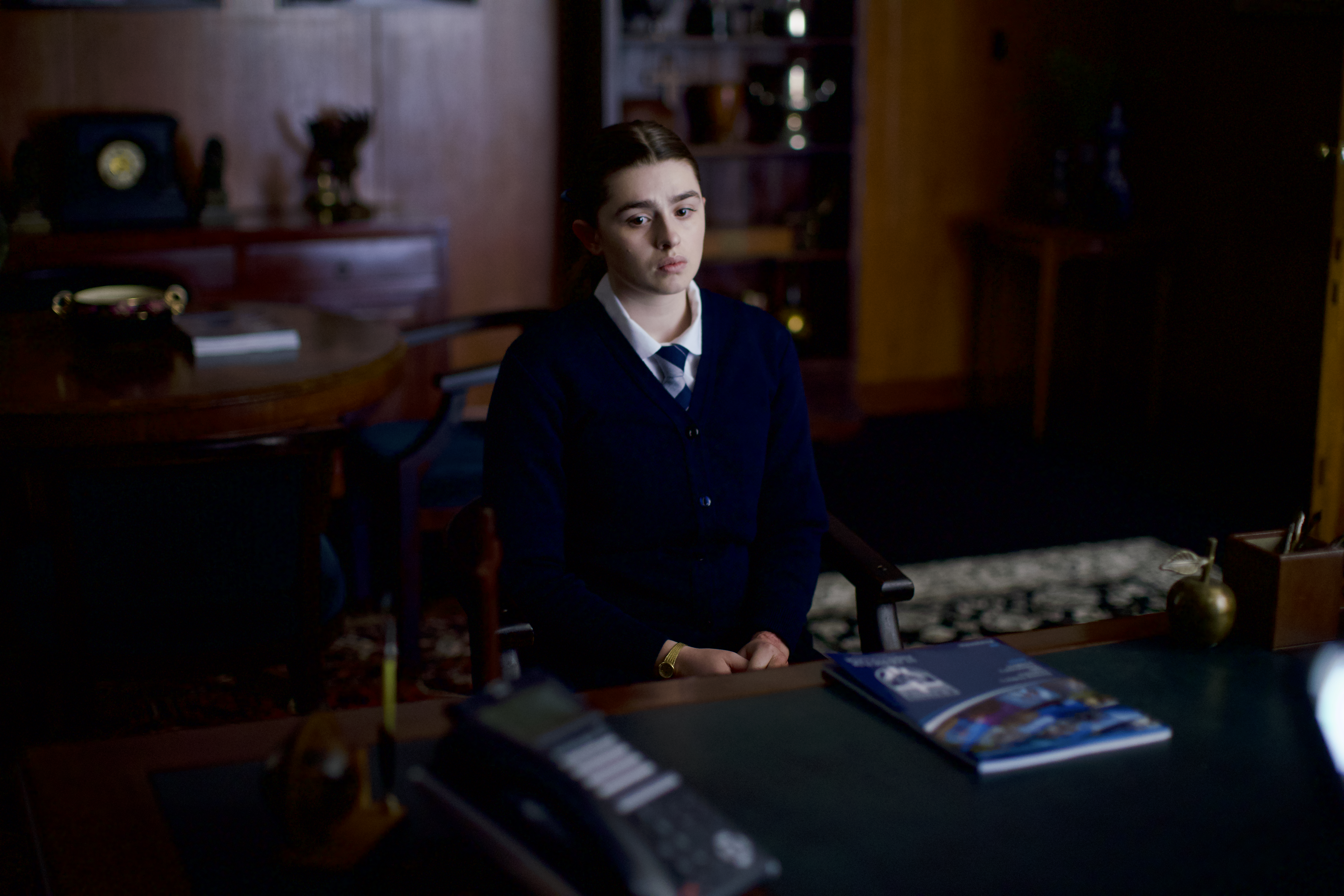“I wish I could be as brave as you, Ms.”
It’s remarkable how, even at our lowest, we can still be seen as strong, brave, and inspiring to others. In Miki Magasiva’s directorial debut, TINĀ, we are taken on a heartfelt journey that brings joy, laughter, and tears.
The film follows the story of Mareta, a grieving mother played by the incredibly talented Samoan actress, Anapela Polata’ivao, as she embarks on a journey of rediscovering her purpose after the loss of her daughter. Hired as a substitute teacher at an exclusive private school, Mareta forms a bond with Sophie (played by Antonia Robinson), a student struggling with her own set of challenges. Their relationship takes a central role in the film, leading to the creation of a school choir.
What stands out, however, is how Mareta’s connection with Sophie is presented. The film suggests that Sophie, a white girl, becomes a stand-in for Mareta’s own daughter, a portrayal that is solidified when Mareta gives Sophie her late daughter’s hair clip during a moment of crisis. She tells Sophie, “No matter what happens, I want you to keep singing.” While this is meant to be a touching moment, it raises questions, especially considering that in the opening scene, Mareta’s interaction with her actual daughter on the day of her audition feels strained, almost hinting at feelings of envy or worry.

The directorial choice intrigued me, as it seems to touch on a broader pattern often seen in films centered on people of color. TINĀ, while focusing on Samoan culture, subtly perpetuates a trope where characters of color set aside their struggles to elevate white characters. It’s a curious dynamic, especially in a film where Samoan/Pacific Islander culture and experiences could have taken the forefront in a more empowering way.
While these narrative choices sparked some thought-provoking concerns, TINĀ undeniably shines in other areas. The performances, particularly from Anapela Polata’ivao and Antonia Robinson, are powerful and heartfelt, grounding the film with genuine emotion. Magasiva’s direction also succeeds in capturing the rawness of grief and the complexities of human connections, especially within the Pacific Islander community, which is rarely given this kind of visibility in mainstream cinema.
The film’s beautiful cinematography and authentic portrayal of cultural elements are also commendable. The exploration of music as a tool for healing adds a layer of hope and resilience, making the emotional journey of the characters feel sincere and relatable.

Ikani Naulu is a multifaceted creative working as a photographer, writer, and freelance social media manager and content creator. Born and raised in Honolulu, Hawai’i, and of Tongan descent, he is a member of Honua Media, a Pacific Islander group focused on storytelling through food and culture. A graduate of Bushnell University with a business degree, Ikani combines his creativity and business skills in his work. In his free time, Ikani enjoys treating himself to movies, playing pickleball, and cooking for his family. His ultimate goal is to contribute to opening doors for fellow Tongan people who are interested in the arts and entertainment industry.
The HIFF ONLINE CREATIVES & CRITICS IMMERSIVE (HOCCI) program supports sustainable film criticism in Hawai’i through mentorship and paid career opportunities for Hawai’i-based AANHPI critics. The mission of HOCCI is to broaden diversity in film criticism across the Pacific and use influencer branding strategies to spark career opportunities. The 2024 HOCCI is supported by Critical Minded, a grant-making and learning initiative that supports cultural critics of color in the United States.



